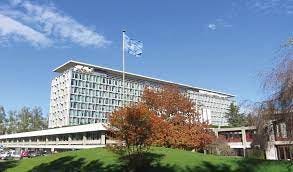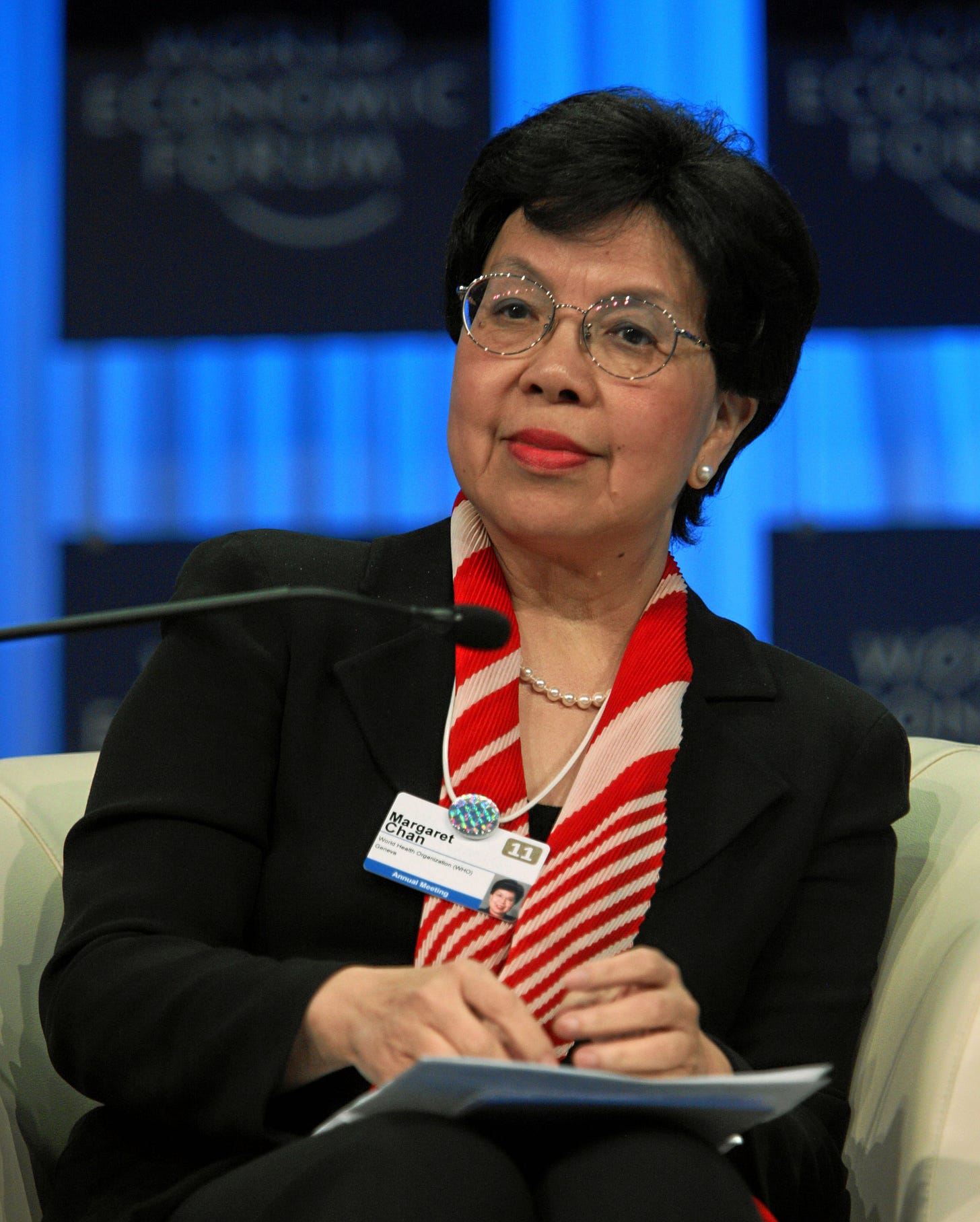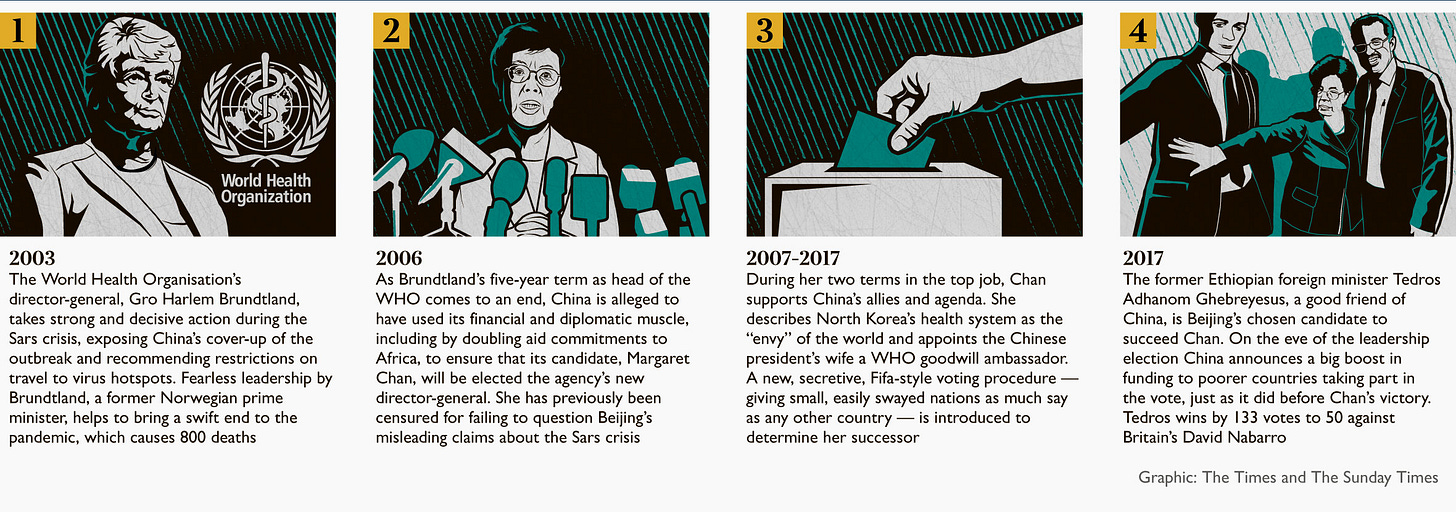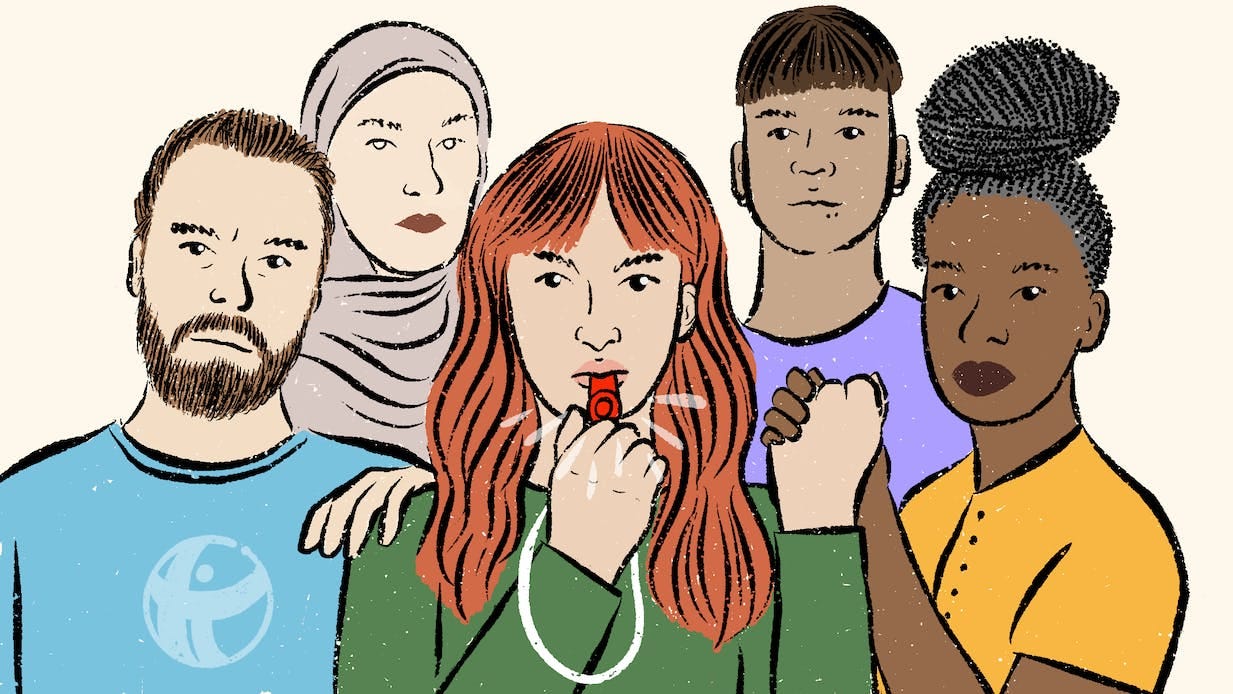Why Journalism Matters
Investigative reporters probe the heart of the origins of COVID-19 and how China subverted the WHO. Also celebrating World Whistleblowers Day.
6 minute read
Leading Investigative journalists find best evidence yet of the real cause of the Covid-19 pandemic
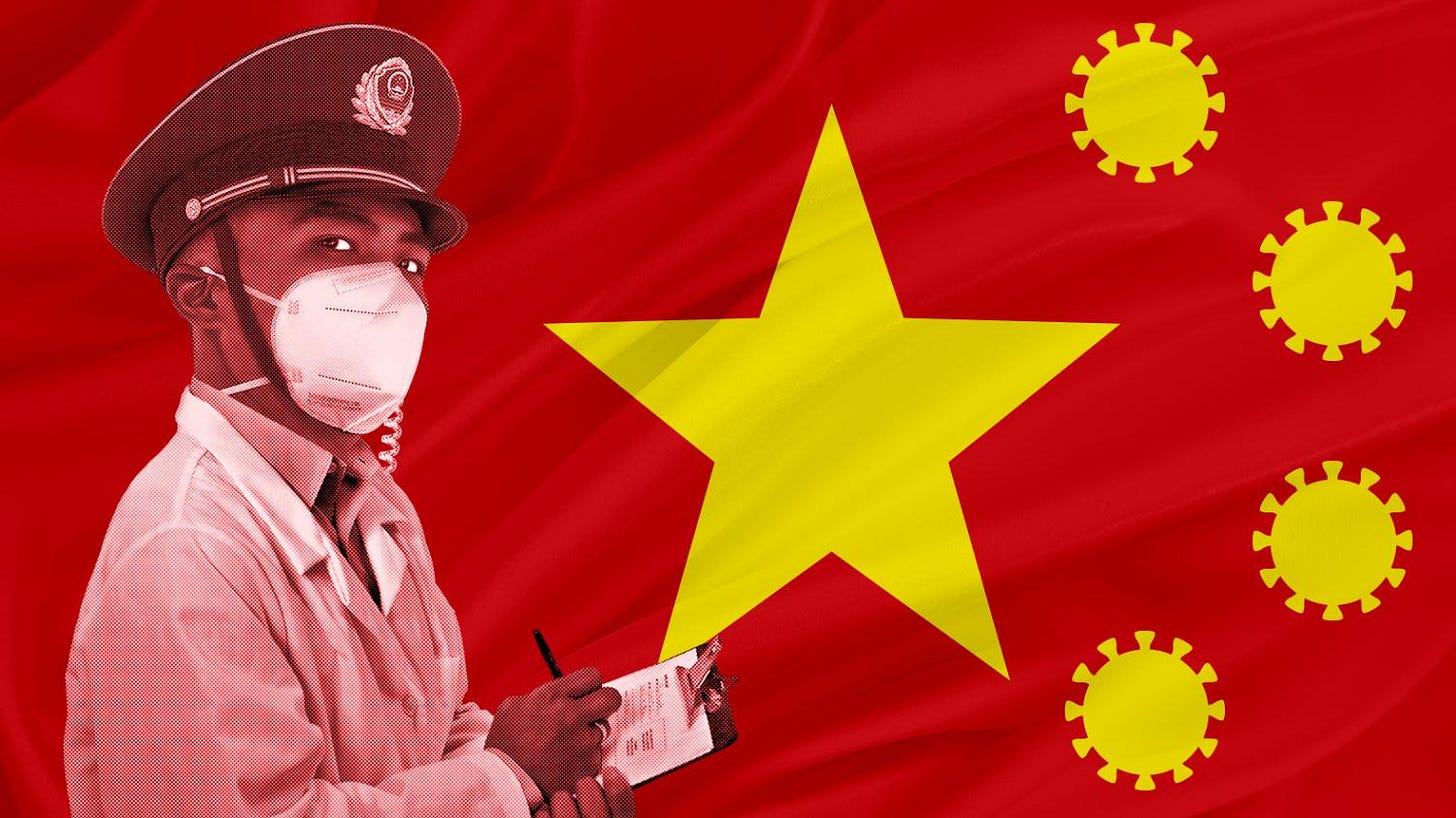
“There has been an unprecedented scientific cover up both in China and internationally, which has attempted to portray any suggestion there was a lab leak as a conspiracy theory.
“This has hindered a proper discussion about the origins of the virus and stopped measures being taken that might ensure another pandemic does not take place.
“We believe a lab leak is the most likely explanation and the cover up is an enormous scandal.
“…High risk virus experiments have continued in laboratories around the world. Indeed experts tell us … work has actually escalated since the pandemic. We believe not nearly enough has been done to ensure this type of research does not cause a future catastrophe.”
—George Arbuthnott, deputy editor, Sunday Times Insight team explaining the ST’s most recent COVID investigation in a Q and A session with readers on The Times website.
Like global warming the COVID-19 pandemic has touched the whole world, and although it is no longer the source of disruption that it was only a short time ago, its impact remains brutal and long lasting.
The WHO Covid dashboard lists almost 7 million deaths and 768,187,096 confirmed cases since the pandemic began in 2019.
(Also 13,398,054,518 vaccine doses have been administered in that time which has almost certainly kept the death and sickness toll from rising even higher.)
The economic impact has been so great that it’s almost impossible to put a number on it. (In the UK alone, the sixth largest economy in the world, the cost is estimated at being over $250 billion, a quarter of a trillion dollars.)
The World Bank reports that it has greatly increased poverty and inequality across the world and it will take many years to return to the pre-pandemic financial situation.
Establish responsibility
In these circumstances it is entirely justifiable to establish responsibility for the outbreak, which almost certainly could have been prevented/mitigated with timely action by national and international authorities.
There has been much speculation about the causes and origins of the outbreak, all centred on China, but so far the Chinese authorities have not allowed the WHO to make a thorough and transparent assessment of what went on, so as to prevent it from recurring.
As is often the case the examination of these issues falls, in the first instance at least, to investigative journalists.
The Sunday Times Insight team based in the UK is one of the world’s oldest and most well known outlets of investigative journalism.
On June 10 they published what they feel is the most definitive explanation yet for the COVID 19 outbreak; their research and analysis points clearly and unambiguously at the actions of the Chinese state.
The Insight team reported that US investigators (who have had access to top-secret intercepted communications and scientific research) believe that Chinese scientists were running a project of dangerous experiments which led to a leak of coronaviruses from the Wuhan Institute of Virology and resulted in the subsequent COVID-19 outbreak.
The ST investigation was written by the editor of the Insight Team Jonathan Calvert and his deputy George Arbuthnott.
They began by explaining the work that went into their report:
“The Sunday Times has reviewed hundreds of documents, including previously confidential reports, internal memos, scientific papers and email correspondence that has been obtained through sources or by freedom of information campaigners in the three years since the pandemic started.
“We also interviewed the US State Department investigators — including experts on China, emerging pandemic threats, and biowarfare — who conducted the first significant US inquiry into the origins of the Covid-19 outbreak.
The ST report reveals that in the years between the initial SARS epidemic in 2003 and the COVID 19 outbreak coronaviruses were regularly transported to the Wuhan Institute from bat caves in Southern China. (Following the initial Sars epidemic the institute attracted US government funding via a New York-based charity for research.) Then, in 2016, without warning or explanation, the work of its scientists became classified.
One of the American investigators interviewed by Insight expressed the view that the secrecy came about because of the military’s involvement and their ‘pursuit of dual use capabilities in virological weapons and vaccines’.
The researchers found evidence that researchers working on these experiments were taken to hospital with Covid-like symptoms in November 2019 — a month before the West became aware of the pandemic — and one of their relatives died. This is the first known direct connection between the pandemic and the Wuhan Institute.
High-risk research
The Sunday Times quotes eminent microbiologist Professor Richard Ebright, of Rutgers University’s Waksman Institute of Microbiology, who is a long-standing opponent of the high-risk research undertaken at Wuhan.
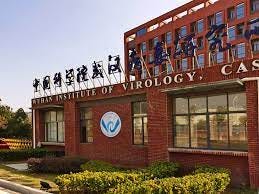
He reviewed the experiments and described them as “by far the most reckless and dangerous research on coronaviruses — or indeed on any viruses — known to have been undertaken at any time in any location.”
The American researchers believe this research led to the creation of the Covid-19 virus, and that it leaked into the city of Wuhan after a laboratory accident.
“It has become increasingly clear that the Wuhan Institute of Virology was involved in the creation, promulgation and cover-up of the Covid-19 pandemic,” one of the investigators said.
For the full story, click on the link below.
Reference
Sunday Times Covid investigation
6 minute interview
How China achieved ‘decisive’ influence over the WHO which impeded the fight against COVID-19
“After being heavily criticised by the World Health Organisation for its response to Sars in 2003, China decided it would not accept such public humiliation again.”
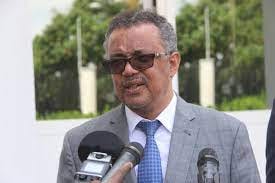
The Sunday Times Covid investigation (above) into the origins of the outbreak follows up on work they have done on China’s campaign to seize decisive sway over the World Health Organisation.
Published originally in 2021, this investigation takes as its starting point the response to the original SARS epidemic in 2003, which of course also centred on China. It then examines how crucial delays in the response to COVID-19 by the WHO’s hesitant and deferential approach to China’s deceptive explanation of the spread of the virus made the pandemic highly likely.
And we also learn a great deal about how China subverted any real attempt by the WHO to establish the real cause of the global catastrophe which continues to plague us.
Like the most recent ST investigation, this feature was also written by Jonathan Calvert and George Arbuthnott, the two most senior members of the ST’s Insight team.
This report encompasses a very detailed investigation, and it is not possible to summarise all that detail in this edition. Readers will need to read the ST report in full here for a greater understanding.
In brief their investigation concluded that:
● China secured WHO votes using political and economic leverage to install its chosen candidates as director-general.
● The WHO leadership prioritised China’s economic interests over halting the spread of the virus when Covid-19 first emerged.
In 2003 the then WHO Director Dr Gro Harlem Brundtland publicly criticised China for being slow in sharing information about SARS (another flu-like infection caused by a coronavirus) with the rest of the world and for keeping certain vital information about its spread secret.
“It would have been much better if the Chinese government had been more open in the early stages,” she said.
On April 2 that year WHO issued unprecedented travel advice, recommending that people postpone any planned trips to Hong Kong and Guangdong province, and then to Toronto when it spread there—an action that certainly helped to contain the spread of the virus.
A former prime minister of Norway, Brundtland has received praise as the most effective leader of the WHO since its establishment in 1948. The SARS virus was brought under control by the early summer with only 8,000 cases and just under 800 deaths.
As Brundtland said in a speech in May 2003 celebrating 75 years of the WHO: “When SARS hit in 2003 we benefited from the fundamental principles of the WHO constitution: integrity, values, equity and scientific evidence. We had worked hard to unify the organisation and prioritise. This helped us stand up to governments reluctant to act, faced with a dangerous outbreak.”
But rather than embracing openness about health emergencies, China decided to initiate a drive to gain internal control over the WHO and elect DGs who would be more friendly to its interests.
China’s campaign to steer the WHO in its direction scored its first major success with the election of Dr Margaret Chan as director-general in 2006. Although seen as an able civil servant, she is most remembered for a number of shortcomings.
First of all, in 2010 after visiting North Korea (a Chinese ally) she voiced inexplicable and unwarranted praise for the North Korean medical system which she said would be the ‘envy’ of many developing countries.
This flew in the face of North Korea’s widespread human rights abuses against its own people and extensive evidence of the state’s failure to provide even minimal care. Shortly afterwards Amnesty international gave a searing assessment of NK’s health provision.
“North Korea has failed to provide for the most basic health and survival needs of its people. This is especially true of those who are too poor to pay for medical care,” said Catherine Baber, Amnesty International’s Deputy Director for the Asia-Pacific.
The 2010 Amnesty report added: “According to the World Health Organisation’s last available figures, North Korea spent less on healthcare than any other country in the world – just US$0.5 per person per year in total. The North Korean government still claims that its healthcare system is free for all, but in reality, payment has been required for all services since the 1990s, with doctors usually paid in cigarettes, alcohol or food for the most basic consults, taking cash for anything else, like tests or surgery.”
Unprepared for Ebola
Chan was also forced to admit her agency was unprepared for the Ebola epidemic in West Africa in 2014. "It overwhelmed the capacity of WHO, and it is a crisis that cannot be solved by a single agency or single country," she said in January of that year while announcing proposed reforms to the world health body.
Although Chan believed no single agency could have solved the Ebola epidemic, critics, including the medical charity Doctors Without Borders, have said WHO should have done more. Chan took two months to declare an emergency over ebola despite repeated warnings from her own experts.
THE UN was forced to establish an emergency health mission separate from the WHO (the United Nations Mission for Ebola Emergency Response, or UNMEER), tasked with ‘stopping the outbreak, treating the infected, ensuring essential services, preserving stability and preventing further outbreaks’.
In 2017 Beijing was instrumental in installing Tedros Adhanom Ghebreyesus as the £170,000-a-year (US$216,000) head of the agency by pulling strings and calling in favours during the election to replace Chan for the job.
He was a controversial choice. He had been accused of of covering up three cholera outbreaks during his time as Ethiopia’s health minister. Later as foreign minister he was a member of a government alleged to have ‘tortured dissidents, displaced villages and ordered police massacres of protesters’.
Within a month of taking over in July 2017, Tedros went to Beijing to underscore the WHO’s continued commitment to partnership with China under the Belt and Road initiative.
“China’s long experience and expertise in health systems and policies will be invaluable to achieving the WHO’s global priorities, especially in health crisis management,” he wrote in the China Daily.
In 2018 Tedros warned the world of the ongoing threat of a new respiratory illness, like the Spanish flue that had devastated the world in 1918 that could come along again any time, killing millions.
‘Daily priority’
He said he was making it his ‘daily priority’ to make sure he was up to date on the thousands of reports coming in to the WHO every month that might indicate the advent of an outbreak. He promised to act ‘fast and decisively because ignoring the first signs of an outbreak could make the ‘difference between global spread of a deadly disease and rapid interruption of transmission’.
However, as the ST Insight team explained: “ But when the virus that eventually became recognised as the Sars-CoV-2 virus first came to the WHO’s notice they did not act decisively to stop travel or question misleading information coming from China.
“In fact the WHO would receive considerable criticism for failing to help stop the spread of the Sars-CoV-2 virus in the opening weeks of the Covid-19 pandemic.
“ Not only did the organisation fail to act but it also promulgated misinformation about the virus originating from China and even discouraged other nations from taking steps that might have contained the spread. For all his foresight, Tedros would be accused of being ineffective when the big test came.”
Unlike in 2003, there was no criticism from the WHO in 2019 regarding China’s delaying notification of the serious impact of the virus or for not providing information about its spread from human-to-human.
As the ST reported: “[The virus] was identified by the Chinese authorities as a new coronavirus — not unlike SARS — that appeared to be passing between humans. This crucial information — as well as any indication of the alarm already secretly felt by scientific and health officials in China — was withheld from the world.
“However, …Taiwan had been closely monitoring reports in the Chinese media that might indicate a new medical phenomenon and it noted that an internal hospital alert had been reported in an obscure business publication.
“The Taiwanese authorities sent the WHO an email [on the last day of the year] raising concerns about a number of ‘atypical pneumonia cases’ in Wuhan that had been ‘isolated for treatment’. The only reason patients would need to be isolated was that Chinese hospitals feared the virus could pass between humans.”
The WHO ignored these warnings from Taiwan.
“Taiwan’s vice-president, Chen Chien-jen, an epidemiologist by training, would later accuse the WHO of brushing aside this early evidence it had provided on suspected human-to-human transmission and of failing to pass the early warning on to the world.
“… at the beginning of the biggest pandemic for more than a hundred years, the health agency simply took the Chinese explanations about the outbreak at face value. On January 10 the WHO issued a statement saying: ‘From the currently available information, preliminary investigation suggests that there is no significant human-to-human transmission, and no infections among healthcare workers have occurred’.
“Both statements were untrue, and the agency did not even attempt to couch its language in a way that would have made clear that these were merely claims made by China. Instead it was mindful of the need to avoid taking measures that might damage the Chinese economy. ‘WHO advises against the application of any travel or trade restrictions on China,’ its statement went on.”
Reiterated travel advice
In a press briefing on January 23 Tedros stated that there was ‘an emergency in China ... but it has not yet become a global health emergency’, adding that he wished to thank China for its ‘co-operation and transparency’.
The following day the health agency reiterated its advice that countries should not impose travel restrictions on China. This came despite the fact that conditions in Wuhan had become so dangerous that the city had gone into full lockdown—action that was unprecedented in modern times.
As ST reported: “Tedros even claimed that China was ‘completely committed to transparency’, pointing out that it had shared the genomic sequence of the virus ‘immediately’ — when in fact the lab that leaked the sequence had been punished by the country’s authorities for defying the censors.”
Although Tedros’s announcements suggested the WHO and China had everything under control, the virus was already spreading around the world at an alarming rate.
“By this point a crucial four weeks had been lost because China had covered up the highly infectious nature of Sars-CoV-2 while the WHO had repeated its claims unquestioningly. The health agency had failed in its single most important job — to swiftly sound the alarm.”
Professor Richard Ebright, of Rutgers University’s Waksman Institute of Microbiology in New Jersey, a fellow of the Infectious Disease Society of America, believes China played “a decisive role” in delaying the WHO’s response to the emergency that would soon engulf the world.
“Not only did it have a role; it has had a decisive role,” he said. “…There was no scientific or medical or policy justification for the stance that the WHO took in January and February 2020. That was entirely premised on maintaining satisfactory ties to the Chinese government.
“So at every step of the way, the WHO promoted the position that was sought by the Chinese government ... the WHO actively resisted and obstructed efforts by other nations to implement effective border controls that could have limited the spread or even contained the spread of the outbreak.”
And the WHO has yet to drive a renewed effort to establish the real cause of the outbreak in Wuhan, nor challenge China’s obvious deceit in covering up the danger and impact of the disease in the early stages.
Reference
Sunday Times report on China and the WHO
2 minute read
Celebrating World Whistleblowers Day
Investigative journalism would be impossible without the active participation of whistleblowers.
People who are brave, moral and honest enough to expose their direct knowledge of corruption or crime in organisations need to be protected and celebrated. That’s why the world’s leading anti-corruption organisation Transparency International(TI) mark World Whistleblowers Day every year on June 23.
As TI reports: “Whistleblowers play a crucial role in the fight for a fairer world. On World Whistleblowers Day, we honour the courage and determination of people worldwide who speak up against wrongdoing and celebrate the positive changes they bring. However, this is also a day to acknowledge the challenges they often face and the protection they need to speak up.
“Without proper protection, whistleblowers can face personal, professional and legal attacks for speaking up – including dismissal, demotion and prosecution – harming their mental or physical wellbeing.”
Fear of retribution is a strong deterrent to whistleblowers. TI’s research has found that only 47% of people in the EU fell they can safely report corruption and 45% fear reprisals. Women are less likely than men to believe they can safely report corruption or to think that citizens can make a difference against corruption.
This year TI highlights 12 inspiring stories of how Whistleblowers have successfully fought corruption and improved well being for ordinary people around the world. This includes a case in Pakistan which recovered millions of dollars in lost royalty revenue from two private oil companies.
Since 2016 Transparency International has been working with the investigative journalists at the Organised Crime and Corruption Reporting (OCCRP) project to co-ordinate investigative journalism with legal and political advocacy.
The Global Anti-Corruption Consortium has scored some notable successes, such as the Azerbaijani Laundromat Investigation and the Gold for Visas investigation which has ended the practice of the sale of EU citizenship and residency across the union.
Reference
OCCRP Gold for Visas Investigation
The Global Anti-Corruption Consortium
It’s free to subscribe and you can cancel anytime, so give it a try!
Contact us on greatjournalismwjm@gmail.com
Follow us on Facebook and Twitter
facebook.com/whyjournalism matters
twitter @JournalismWhy
Et maintenant disponible en français!




